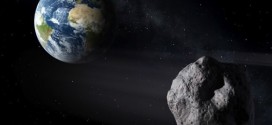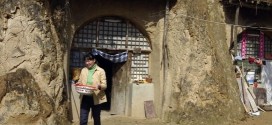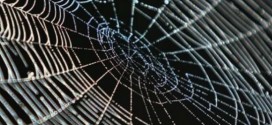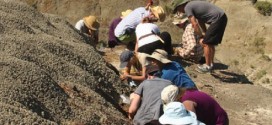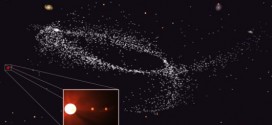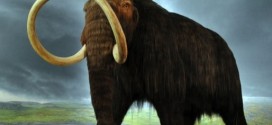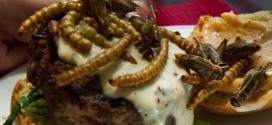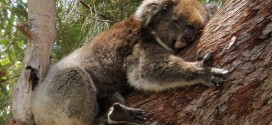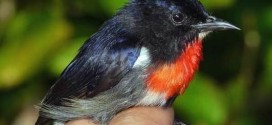A gigantic asteroid nicknamed ‘The Beast’ is expected to fly by Earth on Sunday, June 8. The asteroid 2014 HQ124 is roughly the size of a football stadium, reports Space.com. It has no chance of hitting Earth. The Beast will pass by Earth at about 3.2 lunar distances. Lunar distance is the distance between Earth and moon, which measures 238,855 …
Read More »Science
Researchers : China’s Bulldozing of Mountains Is Nuts
China has taken to cutting off the tops of mountains in order to accommodate its increasing population. According to a report in Nature, local governments started removing the tops of mountains about 10 years ago in order to fill valleys so there is more land to build upon.
Read More »Spiders use their webs to talk to fellow arthropods, New Study
Scientists have discovered that silk can carry vibrations across many frequencies, relaying information to spiders about prey, parts of the web that may need repair, and even potential mates, according to a report by Discovery News.
Read More »Canada : Fossils From Forest Fire Capture Dinosaurs’ Final Days
Archaeologists are learning a bit more about forest fires that occurred 66 million years ago during the time of the dinosaurs. They’ve discovered the first fossil-record evidence of forest fire ecology in Canada, revealing a bit more about the ancient climate of our planet.
Read More »Researchers discover ancient worlds next door
An international team of scientists has discovered two new planets orbiting a star nearly as old as the universe, and one of those planets could have the conditions to support life. Astronomers focused on Kapteyn’s star, the second fastest moving star in the sky and among the brightest and closest, just 13 light-years away.
Read More »Climate Not Responsible for Large Mammal Extinction, research
The mass extinction of large mammals or megafauna during the last Ice Age was caused by humans and not climate changes, according to an Aarhus University study. “Our results strongly underline the fact that human expansion throughout the world has meant an enormous loss of large animals,” Postdoctoral Fellow Søren Faurby said in a statement.
Read More »Secret to making a great cup of coffee revealed by Researchers
Researchers have uncovered the surprising secret behind the perfect cup of coffee – reasonably hard tap water. Experts used computational chemistry methods to examine the impact of different compositions of water on the flavour of coffee.
Read More »Chris Hadfield thrills young Thunder Bay audience
More than 1,000 young Thunder Bay students were treated to a space trip Wednesday with Canadian astronaut Chris Hadfield. It was one of two talks Hadfield gave Wednesday at the Thunder Bay Community Auditorium, with the evening session open to the public.
Read More »Adventures in dining: Temporary restaurant serves up bugs for a good cause
Insects could be the next big thing for the global food supply, and a pest control business will offer free lunches at a pop-up restaurant in D.C. Wednesday to promote the idea. The so-called “Pestaurant on Pennsey” will be set up at the Occidental Grill at 1475 Pennsylvania Ave. NW, and the bait for lunchtime bargain-hunters will include grasshopper burgers, …
Read More »Researchers determine why koalas cling to tree limbs
Researchers have finally figured out why koalas hug trees when it gets hot. A new study published on Tuesday by American and Australian scientists at the University of Melborne, Australia, shows that the iconic animal beats the heat by hugging trees.
Read More »New tropical creature discovered by Irish researchers
Researchers from Trinity College in Dublin have discovered a new species of bird in Indonesia. Zoologists identified a currently unrecognised species from the threatened Sulawesi region. They are proposing that the colourful bird – which looks like an exotic robin – should be called the ‘Wakatobi Flowerpecker’.
Read More » Canada Journal – News of the World Articles and videos to bring you the biggest Canadian news stories from across the country every day
Canada Journal – News of the World Articles and videos to bring you the biggest Canadian news stories from across the country every day
